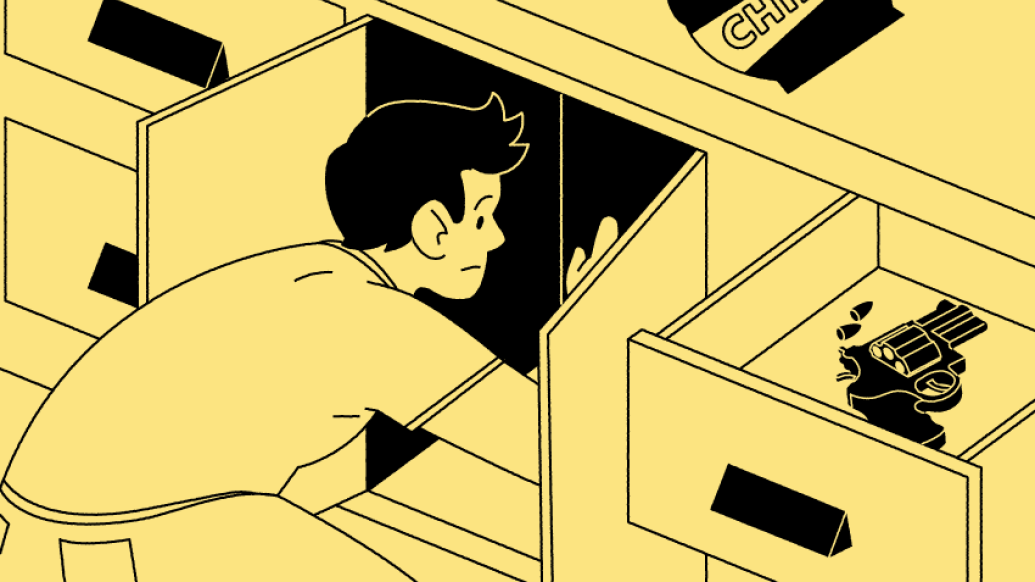One in seven of the households that purchased a gun also had a teen with depression, study finds.
10:46 AM
Author |

Since the start of the COVID-19 pandemic, more parents of teenagers in the United States started buying firearms, according to a recent study.
In a national survey of primary caretakers of teenagers conducted by the Firearm Safety Among Children and Teens, or FACTS, Consortium, 10% of all households with high school-age teens reported buying a firearm in the early months of the pandemic between March and July of 2020, and 3% of U.S. households with teens became first-time gun owners.
While firearm manufacturing and sales have grown steadily since the 1990s, researchers estimate that in the first few months of the coronavirus pandemic 2.1 million additional firearm purchases were made nationwide – a 64.3% increase over expected volume.
For households that already owned a firearm, these new firearms were more likely to be acquired by those who already reported storing at least one gun unlocked and loaded, noted the U-M and Wayne State University study, published in the Journal of Behavioral Medicine.
"This finding is concerning because we know that the single biggest risk factor for adolescent firearm injuries is access to an unsecured firearm," said Patrick Carter, M.D., a co-author of the paper and co-director of the new Institute for Firearm Injury Prevention at the University of Michigan. "This study demonstrates that we have more work to do to help families that already have firearms, or may purchase new firearms, to reduce the potential risks to their children by promoting safer storage practices that help to reduce the risk of teen firearm injury and death."
SEE ALSO: Epidemic of Firearm Injury Spurs New Wave of Research
Each year, nearly 50 out of every 100,000 high school-age teens are injured by firearms and 10 out of every 100,000 are killed. As a result, teens in that age group are more likely to die from a firearm injury than any other leading cause of death.
While the mental health statuses of parents and teens weren't associated with the likelihood of purchasing a firearm, researchers found that one in seven households, 14%, that purchased a gun during the beginning of the COVID pandemic also had a teen who was experiencing depression symptoms.
These findings, taken together, have significant implications for public health practitioners faced with both the COVID-19 pandemic and the firearm injury epidemic, said Marc Zimmerman, Ph.D., a co-author on the publication and co-director of the new U-M Firearm Injury Prevention Institute alongside Carter.
MORE FROM THE LAB: Subscribe to our weekly newsletter
"If we know that families are storing firearms unsafely and that a certain amount of them have teens who are experiencing depression, that can inform how we would tailor messaging around safe storage to families at increased risk," Zimmerman said.
The Institute for Firearm Injury Prevention launched in June crises of firearm injury, from which 100 people die each day in the United States. The institute is supported by a $10 million university commitment, with U-M researchers already having secured more federal funding to study the issue than any other academic institute in the nation.
SEE ALSO: The Facts on the US Children and Teens Killed by Firearms
In this study, led by Wayne State's Rebeccah Sokol, Ph.D., MSPH, the research team concluded that strategies geared towards safe storage for parents, as well as stronger child access prevention policy initiatives, could reduce the risk of firearm injury among teens.
"It's unclear exactly what specific circumstances precipitated this change in firearm purchasing, but we know that future research needs to focus on ways to increase safe storage practices among families with teens," Zimmerman said. "The implications of this line of research may extend beyond the current COVID-19 pandemic and could help us move forward our goal of reducing and preventing future firearm injuries."
Paper cited: "Firearm purchasing during the beginning of the COVID-19 pandemic in households with teens: a national study," Journal of Behavioral Medicine. DOI: 10.1007/s10865-021-00242-w
Like Podcasts? Add the Michigan Medicine News Break on iTunes, Google Podcasts or anywhere you listen to podcasts.

Explore a variety of health care news & stories by visiting the Health Lab home page for more articles.

Department of Communication at Michigan Medicine
Want top health & research news weekly? Sign up for Health Lab’s newsletters today!





